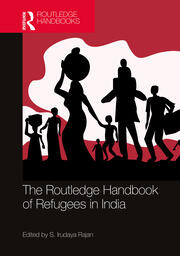Dr. Aditya Ghosh

|
Dr. Aditya Ghosh Post-Doktorand |
Position
- Post-Doktorand (Stipendium)
Kontakt
E-Mail: adityo.ghosh@gmail.com
Kurzbiographie
Aditya is an interdisciplinary sustainability scholar who works across human geography, political ecology, environmental anthropology and sociology, development and postcolonial studies, culture and media studies. His current project, funded by the Fritz Thyssan Foundation, examines vernacular literary forms and local rituals to uncover knowledge of human-environment interactions. Nestled in local cultures and everyday practices, these insights have consistently been marginalised by the knowledge hegemony of global techno-science regime. Unlocking epistemic plurality, he feels, can better inform technology and natural sciences, enabling socio-culturally nuanced solutions towards sustainable transformation pathways. Learning about local sustainability practices can also help better understanding how to foster individual and collective behavioural shifts towards sustainable futures. Thematically, Aditya's research encompasses rural-urban transformations, disaster risk reduction, environmental narratives, discourses and communication, human-environment interactions, energy transition, spatial planning. He conducts extensive place-based studies and connects them to the larger theoretical questions at the global scales. Aditya has nine years of academic, policy research and teaching experience in Europe and the USA as well as another nine years of professional career prior to that in the media as a senior editor and journalist in Asia and Africa. He has a PhD (University of Heidelberg – 2016), twin masters’ in environmental studies and media studies from universities of Sussex and Calcutta respectively. Apart from his present grant, he has also been a recipient of DAAD and Chevening fellowships.
Fritz-Thyssen Projekt
Independent research grant (two-year):
“When fictions reveal facts: (Re)constructing sustainability in the Global South by literary and socio-cultural narratives”.
Funded by: Fritz-Thyssen Stiftung, Germany (September 2019 onwards)
Abstract
Vernacular literature and cultural rituals can be two critical sources of knowledge about local environments – their history, evolution, negotiations with humans that shaped their present forms. However, little attempt has been made to uncover this knowledge in the postcolonial geographies. These insights have the potential to meaningfully inform and help design technologies towards sustainability and climate governance, foster behavioural shifts, contribute to policy processes and mobilise local socio-political action towards transforming development trajectories in the Global South. This project attempts to demonstrate how the vernacular literary forms and sociocultural rituals encode, describe and chronicle ecological evolution and human-environment relations in a given geography. Divergence of these narratives from the Anglophone, colonial accounts on the same landscapes reveals how domination of nature, in alliance with ‘scientific’ environment management, was initiated by the colonists to legitimise resource extraction and exploitation of the environment in these colonies. As the Anthropocene now demands reimagining environment governance across the world – particularly in the postcolonial geographies – in order to arrest global warming, make development sustainable and ensure intergenerational justice, the importance of uncovering diverse and contextual epistemologies is keenly felt. New disciplines such as environmental anthropology and humanities attempt to provide this epistemological plurality, invoke fresh ways of thinking about geo and body politics of knowledge, offer new tools to reimagine postcolonial geographies by disaggregating environmental knowledge nestled in vernacular literary forms, cultural rituals and practices. Apart from helping re-politicise the sustainability debate, these insights can co-produce knowledge along with natural and technological sciences. This project is geographically situated in undivided Bengal – the largest province in South Asia during the British colonial rule – now spread across two countries, India (West Bengal) and Bangladesh. Bengali, the language of the region, has 262 million speakers, making it the ninth and sixth largest language in terms of total speakers and native speakers respectively in the world. This project will re-read select works from a rich body of literature in the language from within five genres – novels, short stories, poems, songs and rhymes. It will simultaneously observe and decode select ecological rituals from the region to uncover nuanced knowledge that can inform sustainable transformations in the Global South.











